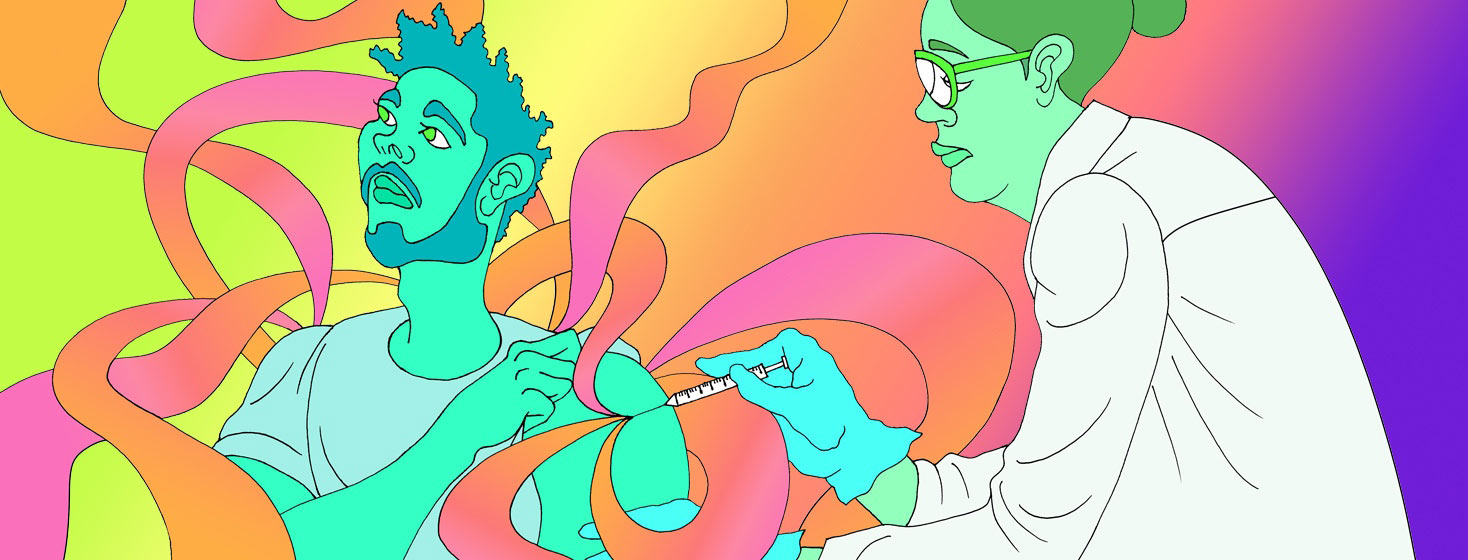New Tech Gives Hope for an HIV Vaccine
The COVID-19 pandemic has focused attention on vaccines - in particular, the new type of vaccine based on messenger RNA, or mRNA. The first 2 vaccines to be available in the US, from Pfizer and Moderna, both use this mRNA technology.1
While scientists have been studying mRNA vaccines for many years, the COVID-19 pandemic created an urgent reason to test them. And they work! So now Moderna is taking that mRNA tech to the effort to prevent HIV.2-4
The Moderna HIV mRNA vaccine trial
This upcoming human trial will test 2 different mRNA vaccines called mRNA-1644 and mRNA-1644v2Core. Participants may get one or the other or may receive both of the trial vaccines.5
Researchers will then measure the immune cells and antibodies of the people who get the vaccines. The hope is that using the 2 different vaccines together will create a stronger immune response that will actually prevent HIV from infecting cells. The trial is expected to finish in April 2023.5,6
How do mRNA vaccines work?
Traditional vaccines (like those for Hepatitis B or HPV) contain parts of the outside of a virus. Our immune system creates antibodies (the proteins that our body uses to protect us against infection) against these virus parts. Then if we’re exposed to that virus, we make lots of antibodies to stop the virus before it gets into the body.7,8
mRNA vaccines work differently. Instead of containing the virus parts, they contain instructions for our bodies to make those parts (like the spike protein on COVID-19). Then our bodies make antibodies against those pieces. The mRNA then dissolves, but our body still knows how to recognize the virus if we’re exposed and fight it off.1,6
Why isn't there an HIV vaccine yet?
It’s been hard to make an effective HIV vaccine for a few reasons. Vaccines that have been tested so far did not produce enough of an immune response to stop the virus from entering cells.
Another main problem is that HIV mutates (changes) really quickly. This means that a vaccine needs to protect against many different forms of the virus.
Broadly-neutralizing antibodies (bnAbs)
Remember that antibodies are proteins that our body makes to fight infection. There is a special type of antibody, called "broadly-neutralizing antibodies" (bnAbs) that some people living with HIV have. These bnAbs can block many different versions of the virus.6
Some people who have lived with HIV for years make bnAbs, but they usually don’t make enough, quickly enough, to cure themselves. Antibodies copied from these people can prevent infection with certain strains of HIV.9,10
A vaccine that creates bnAbs prevents HIV infection in animals. And scientists say that a recent trial of this vaccine showed that it does cause the body to create the special kind of immune cell that makes bnAbs in humans.11-13
Encouraging news
This is encouraging news, and the Moderna trial will pull all of this information together in the test vaccines. We know, from the COVID-19 mRNA shots, that this type of vaccine is effective, safe, and can be produced quickly.
Scientists now hope that a vaccine using the new mRNA technology to create broadly-neutralizing antibodies will work to prevent HIV infection.
 Dr. Audrey Sheridan is a board-certified obstetrician-gynecologist (OB-GYN) and also a caretaker for her dad. Dr. Sheridan is inspired by people finding their way through life-changing medical situations with resilience and is interested in how we can increase our mental durability in the face of the unpredictable.
Dr. Audrey Sheridan is a board-certified obstetrician-gynecologist (OB-GYN) and also a caretaker for her dad. Dr. Sheridan is inspired by people finding their way through life-changing medical situations with resilience and is interested in how we can increase our mental durability in the face of the unpredictable.
Join the conversation